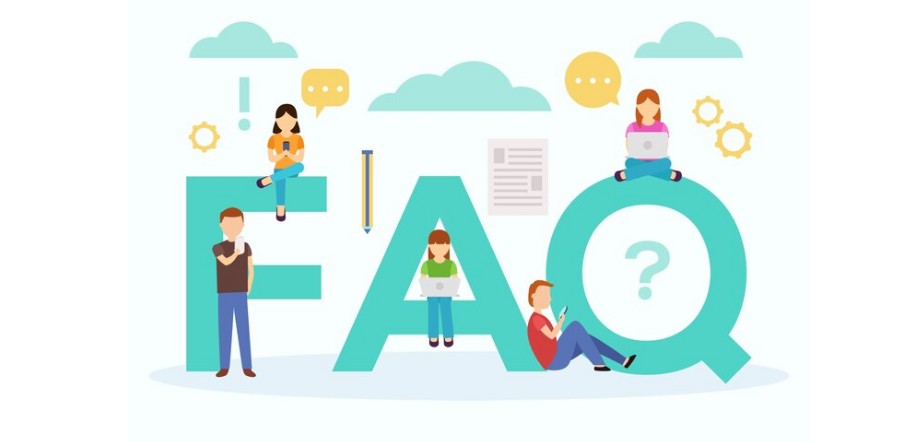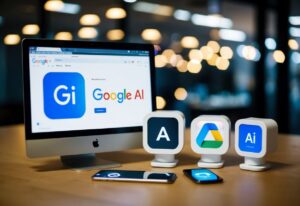“How” Questions people frequently ask about AI
30 most common “How” questions people Frequently Ask about AI and their answers.
As I delve into the fascinating realm of Artificial Intelligence (AI), I often encounter a myriad of frequently asked questions — especially those beginning with “how” – AI FAQS – (How). These inquiries reflect our natural curiosity about this groundbreaking technology and its growing presence in our daily lives.
How does AI learn? How is it being used in different industries? How can we ensure it remains ethical and safe? In this article, I will address some of the most frequently asked “how” questions about AI.
By providing clear and informative answers, I hope to demystify AI and offer insights into how it works, its applications, and its implications for our future.

AI FAQS – (How)
- How does artificial intelligence work?
Artificial intelligence operates using a combination of algorithms, machine learning, and data processing to make sense of information, recognize patterns, and draw conclusions. - How is AI used in daily life?
AI enhances daily life through smart home devices, navigation apps, and personal virtual assistants, simplifying tasks and improving convenience. - How can AI improve business operations?
AI optimizes business operations by automating tasks, analyzing large datasets, and enhancing customer service, which increases efficiency. - How does AI impact employment and job creation?
AI impacts employment by automating certain roles while also creating opportunities in AI-related fields such as data science, model training, and AI ethics. - How can AI be used in healthcare?
In healthcare, AI improves diagnostics, personalizes treatment, and assists in analyzing medical data, enhancing patient care while reducing human error. - How does AI learn from data?
AI uses machine learning to learn by identifying patterns within data, which improves its predictions and decision-making abilities over time. - How does AI affect data privacy and security?
AI both enhances security by detecting suspicious patterns and presents data privacy risks, requiring regulations and protocols to protect personal data. - How can AI help in education?
AI supports education by providing personalized learning, assessing performance, and even assisting educators with grading automation. - How does AI influence decision-making?
By analyzing data trends, AI helps in decision-making by providing predictive insights, though human oversight is crucial to maintain ethical standards. - How does machine learning differ from AI?
Machine learning is a subset of AI focused specifically on learning from data, while artificial intelligence encompasses a broader range of technologies and applications. - How is AI changing customer service?
AI revolutionizes customer service by automating responses, using chatbots, and providing personalized support 24/7, which improves user satisfaction. - How can AI support content creation and marketing?
AI aids content creation by generating ideas, optimizing campaigns, and personalizing strategies, making marketing efforts more effective. - How does AI contribute to automation in industries?
AI drives industrial automation by performing repetitive tasks, enhancing quality control, and boosting productivity, which reshapes manufacturing and other sectors. - How can AI assist in language translation?
AI enables real-time language translation, helping break communication barriers in global contexts, especially for customer service and cross-border interactions. - How does AI help in scientific research and development?
AI accelerates research and development by analyzing complex datasets, assisting in data-driven discoveries, and improving accuracy in fields like genetics and climate science. - How can businesses adopt AI technologies effectively?
To adopt AI technologies, businesses start with pilot projects, assess the best use cases, and invest in training for smooth integration. - How does AI handle large datasets?
AI processes big data through machine learning, deep learning, and other computational techniques, enabling it to extract insights and drive decision-making. - How can AI improve supply chain management?
AI enhances supply chain management by predicting demand, optimizing logistics, and ensuring a more resilient and efficient supply chain. - How does AI identify and prevent fraud?
AI detects fraud by recognizing abnormal patterns in financial transactions, which helps prevent financial crimes in industries like banking and e-commerce. - How can AI enhance personal productivity?
AI increases personal productivity with tools for time management, reminders, and prioritization, allowing individuals to focus on their most important tasks. - How does AI power self-driving cars?
Self-driving cars rely on AI and sensor data to detect obstacles, navigate roads, and make decisions, transforming transportation. - How can AI help in agriculture?
In agriculture, AI predicts crop yields, monitors soil health, and automates planting and harvesting tasks, supporting sustainable farming practices. - How does AI interact with robotics?
AI-driven robotics allows robots to learn from data, adapt to environments, and perform tasks independently, improving automation across industries. - How does AI impact cybersecurity?
AI strengthens cybersecurity by identifying potential threats, monitoring security breaches, and preventing attacks through predictive models and anomaly detection. - How can AI support mental health?
AI supports mental health through virtual therapy, mood tracking, and personalized wellness suggestions, making mental health resources more accessible. - How does AI help in environmental conservation?
AI aids in environmental conservation by analyzing climate data, tracking wildlife, and predicting environmental changes to guide sustainable practices. - How can AI improve customer personalization?
AI enhances customer personalization by analyzing user data, tailoring recommendations, and anticipating needs, creating a more engaging experience. - How does AI handle unstructured data?
AI processes unstructured data like text and images using natural language processing and computer vision to gain valuable insights from non-standardized formats. - How does AI impact the gaming industry?
In gaming, AI generates dynamic storylines, adapts to player behavior, and enhances game design, making games more immersive. - How can AI assist in financial planning?
AI tools for financial planning analyze spending, create budgets, and provide investment predictions, helping users manage finances more effectively.
Conclusion.
In wrapping up our exploration of the most common frequently asked questions – AI FAQS – (How) about AI, I feel a renewed appreciation for the complexities and wonders of this technology.
Understanding how AI operates—its learning processes, applications across various sectors, and the safeguards we can implement—empowers us to engage more meaningfully with its advancements.
While AI presents challenges that require careful consideration, such as ethical implications and potential biases, it also holds tremendous promise for enhancing our lives and solving pressing global issues. As we move forward, let us remain inquisitive and informed, continually seeking to understand how we can harness AI’s potential while addressing its challenges head-on.
By fostering a culture of knowledge and dialogue, we can navigate the future of AI with confidence and optimism.


















